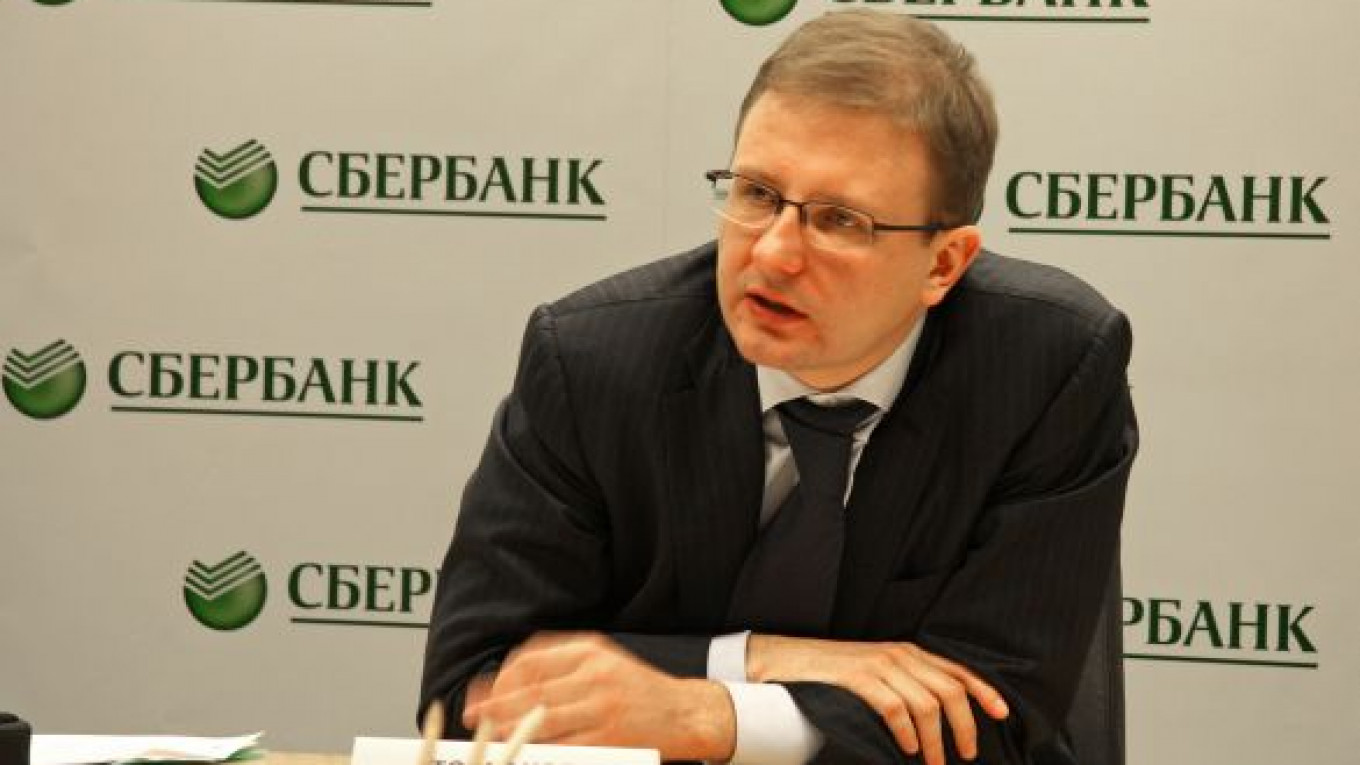Sberbank, the country's biggest lender, is looking to technological innovation to stabilize its declining share of the retail banking market.
The head of Sberbank's retail banking arm, Alexander Torbakhov, said Wednesday that the bank is pressing ahead with plans to persuade pensioners to swap their traditional sberknizhki, or savings account books, for plastic bank cards.
In a pilot project for the scheme conducted in five small towns, only two percent of Sberbank's pension-age customers refused to use the new card, said Torbakhov, though they were offered financial incentives to switch.
Toward the end of April, Sberbank is going to begin spreading this technology to the rest of the country, he said.
Sberbank's share of the domestic retail banking market was between 47.5 and 48 percent at the end of 2010, down from 80 percent in 1998. Although a drop in the first quarter "is traditional," Torbakhov said, Sberbank aims to maintain the 48 percent market share at the close of 2011.
Other developments that illustrated Sberbank's leading position in high-tech innovation, Torbakhov said, include the 8 million customers who had registered for internet banking — although only half a million people make an average of one transaction or more online each month.
More than 1.5 million people use the service offered by Sberbank that allows customers to pay their mobile telephone bills by SMS, Torbakhov said.
The 169-year-old Sberbank has a network of 19,100 branches across the country and about 250,000 employees.
Torbakhov stressed Sberbank's broad customer base. "We are a universal bank — we work for all levels of the population, and even the relatively poorly paid can use our banking products," he said.
The bank issued 221 billion rubles ($7.7 billion) worth of property mortgages in 2010, serving between 15,000 and 20,000 families every month.
Chief executive German Gref said in December that retail lending will grow by about 23 percent in 2011.
In a move that clearly shows Sberbank's determination to enter new segments, the lender announced the acquisition of the private investment bank Troika Dialog last week, for a likely final sum of more than $1.5 billion.
There was speculation at the time of the deal that the Troika acquisition might allow Sberbank to expand the range of services offered to its existing retail customers.
Torbakhov refused to comment on any potential impact of the deal on his division. "Today is too early to talk about Troika Dialog," he said.
Deputy Prime Minister Igor Shuvalov said Wednesday that the state may sell part of its controlling stake in Sberbank this year if the requisite conditions are met, Interfax reported.
Economic Development Minister Elvira Nabiullina said earlier this week that the government might not be ready to privatize Sberbank this year.
A Message from The Moscow Times:
Dear readers,
We are facing unprecedented challenges. Russia's Prosecutor General's Office has designated The Moscow Times as an "undesirable" organization, criminalizing our work and putting our staff at risk of prosecution. This follows our earlier unjust labeling as a "foreign agent."
These actions are direct attempts to silence independent journalism in Russia. The authorities claim our work "discredits the decisions of the Russian leadership." We see things differently: we strive to provide accurate, unbiased reporting on Russia.
We, the journalists of The Moscow Times, refuse to be silenced. But to continue our work, we need your help.
Your support, no matter how small, makes a world of difference. If you can, please support us monthly starting from just $2. It's quick to set up, and every contribution makes a significant impact.
By supporting The Moscow Times, you're defending open, independent journalism in the face of repression. Thank you for standing with us.
Remind me later.







